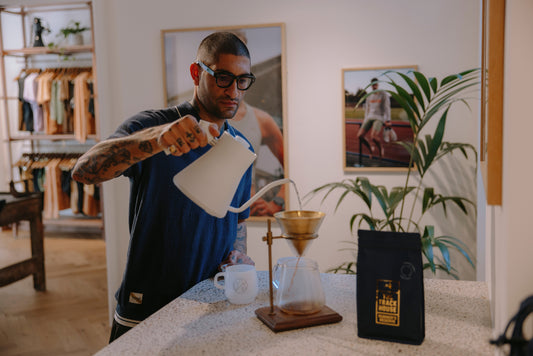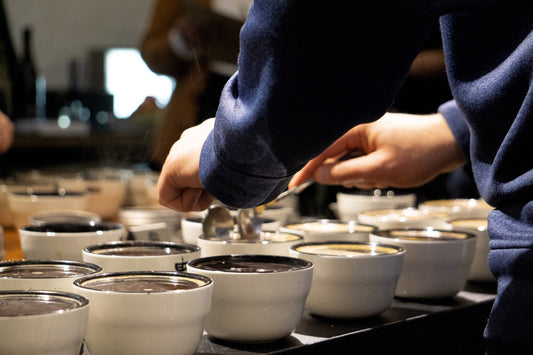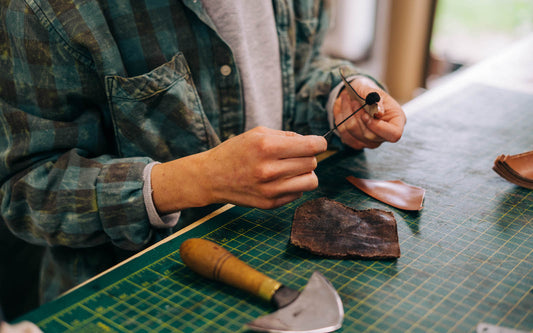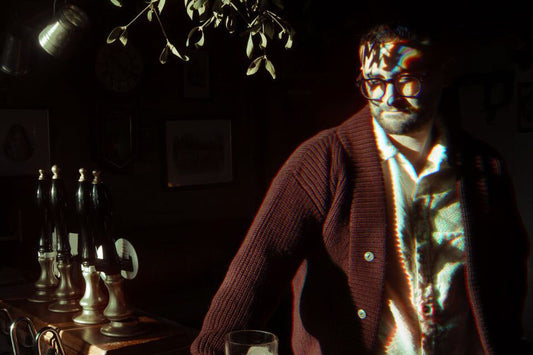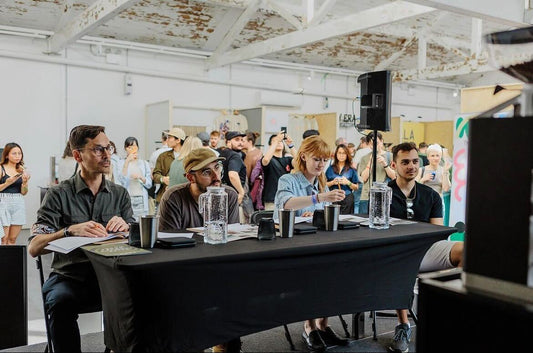
The final instalment of The Tempest Two's guest posts comes at an apt time. Firstly, they've recently released the trailer to their feature-length film, which will chart their journey across the Atlantic using on-board footage captured by the two. It's scheduled to premier later this summer.
Secondly, Tom and James have had itchy feet ever since they found themselves back on solid ground earlier this year and began planning their next challenge almost immediately. Later this month, they're off to tackle their latest adventure and we're happy to say we'll be continuing to support them.
Before they leave once again, though, here's how they made it to the finish despite the best intentions of the weather and the ocean.
-- RF.
Having been given the good news of a clear run into Barbados, predictably our hopes were raised and expectations were set on a finish date. If we were to carry on at a good pace, we'd be sipping on cocktails on the 9th February, reunited with our loved ones, and sleeping in a soft, clean bed.
Optimism, however, is probably the most dangerous feeling one can allow on the sea. Around two weeks out, our weather window was shut firmly in our faces and we were faced with a heavy storm coming down from North America. Picking up pace and strength, its course, it seemed, was focused directly on our 7 meter boat.
There was no avoiding it.
By the time it had reached us, the storm had gained a name: Hurricane Alex, the first hurricane to form in the Atlantic for over half-a-century. Good timing.
We tied down all of our precious items, stored things away, and locked ourselves in the cabin, waiting for the brunt of the storm. We spent 72 hours in a cabin the size of a single bed, being hit by 60 knot winds and 50 foot waves, our modest boat straining and moaning at the force of the elements around it. Those days seemed to drag on forever, as sleeping was near enough impossible given the washing machine-like conditions.
When it eventually passed over us, and the sun reappeared, we dusted ourselves off and carried on as normal, relieved to be back on the oars and in one piece. Safe to say a Kasigwa aeropress was well out of the question during these 3 days, although hugely enjoyed after the forced break.
The frustration of the three-day delay gave us a huge boost and our minds were focused on one thing: pushing ourselves harder to get to Barbados faster. Over the next two weeks, we rowed together more, sometimes for up to 10 hours with no break, and every stroke of the oars had an extra 10% behind it. We averaged well over 60 nautical miles per day, and ticked off miles, hours and eventually days from our departure ETA. Again, optimism began to climb and, with the finish line a mere 500 miles away our hopes were dashed by the weather once again.
Two enormous pressure systems that weren't visible on any weather charts loomed over us, huge black clouds bringing with them their own weather patterns that stopped us dead in our tracks, and began pushing us South at a rate of knots.

These were the hardest two days, as we were forced to succumb to a sense of total deflation and helplessness. We tried everything we could, rowing together for hours and hours, but gaining no ground. We were being pushed in the opposite direction from our destination. Torrential rain kept us wet and cold and our morale dropped to an all-time low, acutely aware that our families had booked their flights and we were looking at a real chance of missing them completely at the finish line.
We fought through the dark days one more and came out the other side stronger, pushing ourselves as hard as physically possible. Fuelled by the thoughts of our family and several cups of Kasigwa (albeit a little saltier than usual), that was all the power we needed. It wasn't until this point that we realised the ridiculousness of many of our daily habits, including brewing coffee. Usually enjoying our Workshop fix in the warmth of the Clerkenwell Cafe or at home in our kitchen, we couldn't be further from those familiar surroundings, as we continually prepared it in the most isolated of environments. Despite the juxtaposition of context and surroundings, in this simple process was a consistent reminder of home and its comforts. A total of 62 cups of aeropress (and four coffee related accidents) showed our subconscious intent to re-create what we knew.
Over the next week, we gained back the two days we'd lost and, after an extremely close call with a cargo ship, which was a mere 100-metres away from crushing us completely, we were within 20 miles of land, pushing through a night-shift that would be our last if all went well.
The sunrise on the 10th February was like no other we'd seen since setting off. The sun illuminated the horizon and allowed us to see a rich, green island before us -- the first land for the first time in over 50 days. We rounded the northern tip of the island and prepared for the notorious entrance into Port St. Charles, a six-hour slog against strong winds, currents and the risk of shallow reefs.
The Atlantic wasn’t going to make things easy, and those 6 hours were the hardest rowing of the entire trip. We applied back-breaking strokes but could only muster an average speed of less than 1 knot with both of us on the oars.
But it didn’t matter. We were met a few miles from the port by a boat full of our nearest and dearest whose cheers gave us the energy to finish the mammoth trip with everything we had.
We pulled into Port St. Charles Yacht Club at 3pm on 10th February. We were exhausted, skinny, impossibly tanned, but ecstatic.
We'd completed what many thought was impossible.
We'd conquered a challenge widely regarded as the toughest on Earth, with no experience, and stronger friends than when we had left.
Our first steps on land were wobbly, but triumphant and we gingerly stumbled to the bar to enjoy the first sip of the coldest, most glorious beer of our lives. The days that followed were some of the best, bringing with them unparalleled feelings of relief and happiness.
After settling and allowing the enormity of our achievements to begin to sink in, we let ourselves consider: what next?

Share:


